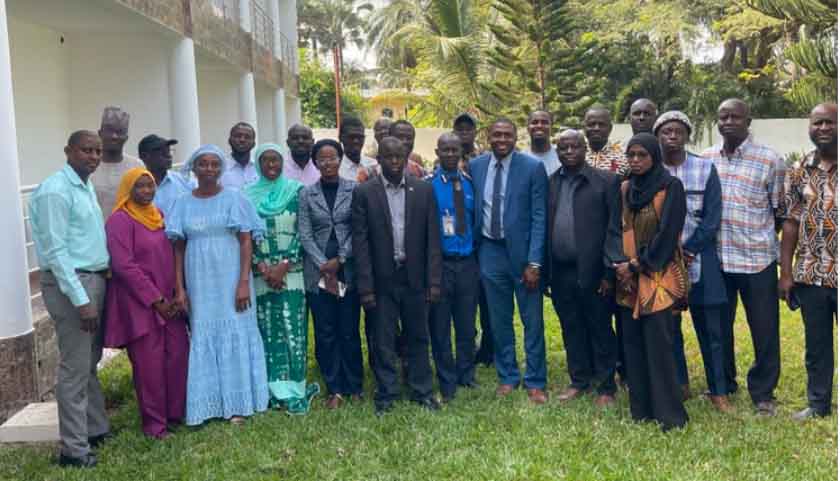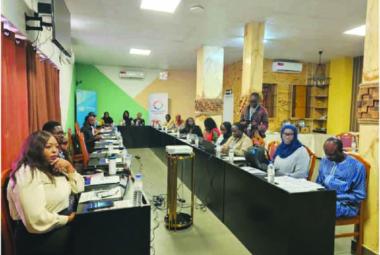By Anna Marie Valentine
The Ministry of Petroleum and Energy in collaboration with The United Nations Environment Programme under the Green Climate Fund (GCF) recently conducted a validation workshop of the Draft National Cooling Action Plan (NCAP) report. The NCAP of The Gambia covers the period 2025 to 2040 and provides a strategic framework to address the growing demand for cooling services across key sectors such as food cold chain, healthcare, transportation and building space cooling. This is under the “ National Framework for Leapfrogging to Energy Efficient and Climate Friendly Room Air Conditioners and Refrigerating Appliances in The Gambia” readiness project. The workshop featured a detailed presentation of the project report by local energy expert and consultant, Mr. Lamin Marong. With rising temperatures that reach up to 43°C in some regions, the country’s subtropical climate is creating a heightened demand for refrigeration and air conditioning services. This demand is projected to increase significantly in the coming decades, placing added pressure on the national electricity grid exacerbating energy shortages and consequently contributing to rising greenhouse gas (GHG) emissions.
These challenges could lead to severe consequences without decisive action, including frequent blackouts, higher energy costs, and a greater risk of public health and food security crises. Cognizant of the severity of the potential consequences, the draft NCAP (2025-2040) of The Gambia, outlines a pathway to mitigate these risks by introducing energy-efficient and climate-friendly cooling technologies, policies, and strategies. The NCAP seeks to enhance access to sustainable and energy-efficient cooling solutions in alignment with The Gambia’s socio-economic development and global environmental goals. The Permanent Secretary of The Ministry of Petroleum and Energy, Mr Lamin Camara, spoke on the steps needed to achieve the benefits of Energy Efficiency in The Gambia. ‘‘It requires a holistic and integrated approach to tackle the rising cooling demand in the country. Specifically, sustainable cooling interventions and measures, including this NCAP documents are needed to address the policy, regulatory and financial challenges associated with cooling in The Gambia,’’ he said.
He added, “Aware of the importance of energy efficiency as a pillar to facilitate universal electricity access, fight against energy poverty, and enhance economic and social benefits, the Ministry of Petroleum and Energy with support from the World Bank Group, developed The Gambia’s first National Energy Efficiency Strategy (NEES) which focuses on the electricity demand side. Therefore, this NCAP is meant to complement the NEES document”. Addressing the rising cooling demand in The Gambia requires a comprehensive and integrated approach. Sustainable cooling interventions such as those outlined in the NCAP documents are essential to overcoming the policy, regulatory and financial challenges that the country faces.







